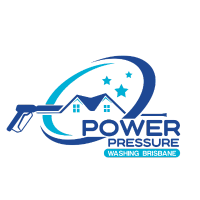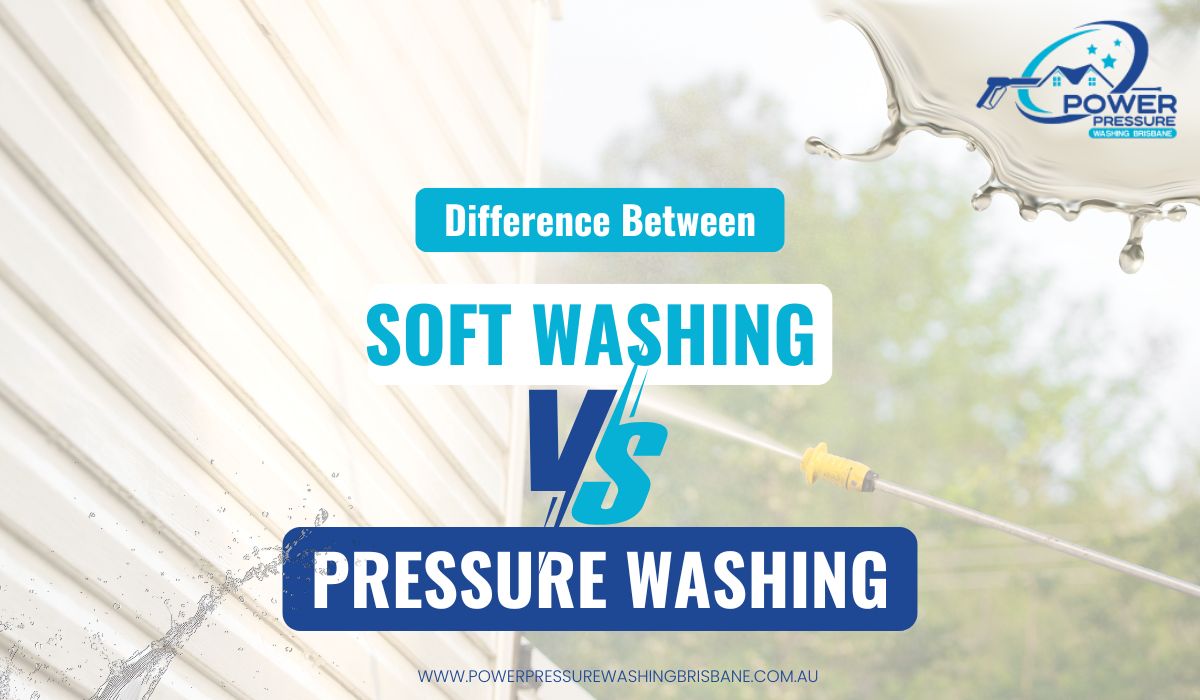You’ve noticed some grime on your siding, moss on your roof, or maybe your driveway is looking a little worse for wear. Naturally, the thought of blasting it all away comes to mind. But wait! Before you reach for that high-powered pressure washer cleaning, have you considered the gentler, yet equally effective, alternative: soft washing?
Many homeowners use the terms interchangeably, but the truth is, soft washing and pressure washing are distinct cleaning methods, each with its own set of applications and benefits. Choosing the wrong one could lead to damage, while selecting the right technique ensures a thorough clean and protects your property.
So, let’s dive into the key differences between these two cleaning powerhouses:
Pressure Washing: The Power Blaster
Imagine a concentrated stream of water, propelled at high pressure, forcefully removing dirt, grime, and other buildup. That’s essentially what pressure washing does. It relies on the kinetic energy of the water to dislodge contaminants from surfaces.
Key Characteristics of Pressure Washing:
- High Water Pressure: Typically ranges from 1300 to over 4000 PSI (pounds per square inch).
- Mechanical Force: Primarily relies on the sheer force of water to clean.
- Effective for: Hard, durable surfaces like concrete driveways, patios, sidewalks, and some brickwork. It’s also great for removing loose paint or heavy, caked-on dirt.
- Potential Downsides: Can damage delicate surfaces like siding, roofing shingles, painted wood, and windows. High pressure can also force water behind surfaces, leading to mold growth or structural issues.
Soft Washing: The Gentle Approach
Soft washing, on the other hand, takes a more nuanced approach. Instead of relying on high pressure, it utilizes a low-pressure application of specialized cleaning solutions to break down and kill organic growth like algae, mold, mildew, lichen, and bacteria. The surfaces are then gently rinsed clean with low-pressure water.
Key Characteristics of Soft Washing:
- Low Water Pressure: Typically below 500 PSI, similar to a garden hose.
- Chemical Cleaning Solutions: Employs biodegradable, water-based solutions tailored to the specific type of growth and surface.
- Effective for: More delicate surfaces such as house siding (vinyl, stucco, wood), roofs (asphalt shingles, tile), fences, decks, and even painted surfaces. It’s particularly effective at eradicating the root cause of organic growth, leading to longer-lasting results.
- Benefits: Minimizes the risk of damage, prevents water intrusion, and effectively eliminates the organisms that cause staining and deterioration.
Here’s a simple analogy:
Think of pressure washing as scrubbing a dirty dish with a rough scouring pad and a lot of force. It works well for tough, stuck-on food. Soft washing is like soaking that same dish in soapy water, allowing the detergent to loosen the grime before a gentle rinse.
Which Method is Right for You?
The best cleaning method depends entirely on the surface you’re cleaning and the type of buildup you’re dealing with. Here’s a quick guide:
| Surface | Recommended Method | Why? |
|---|---|---|
| Sidewalks | Pressure Washing | Similar to driveways, they can handle the force. |
| Brick (some types) | Pressure Washing | It can be effective for removing heavy buildup, but proceed with caution and lower pressure settings. |
| House (Siding) | Soft Washing | Prevents damage to various siding materials (vinyl, stucco, wood), avoids water intrusion, and effectively kills algae/mold. |
| Roof | Soft Washing | Protects delicate shingles/tiles from damage and effectively eradicates damaging organic growth like moss and lichen. |
| Driveway | Pressure Washing | Durable concrete or asphalt can handle the high pressure needed to remove oil stains, dirt, and grime. |
| Gutter Cleaning (Exterior) | Soft Washing | Safely removes algae, mildew, and dirt from the exterior without causing damage to the gutter material. |
| Hard Floors (Outdoor) | Pressure Washing | For durable outdoor hard floors like concrete or stone patios, pressure washing can effectively remove dirt and mildew. |
While pressure washing has its place for tackling tough grime on durable surfaces, soft washing is often the safer and more effective choice for a wider range of residential cleaning needs, especially when dealing with organic growth.
When in doubt, it’s always best to consult with professional cleaning services. They have the expertise and equipment to assess your specific situation and recommend the most appropriate cleaning method to achieve the best results without risking damage to your property.
So, the next time you’re considering cleaning the exterior of your home, remember the difference between the forceful blast of pressure washing and the gentle, yet powerful, touch of soft washing. Your home will thank you for it!
Need help deciding between soft wash and pressure wash for your property? Contact Power Pressure Washing Brisbane today! Our experienced team will assess your needs and recommend the safest, most effective cleaning method. Call us at 0466 216 815 to schedule a service or get a free quote.


